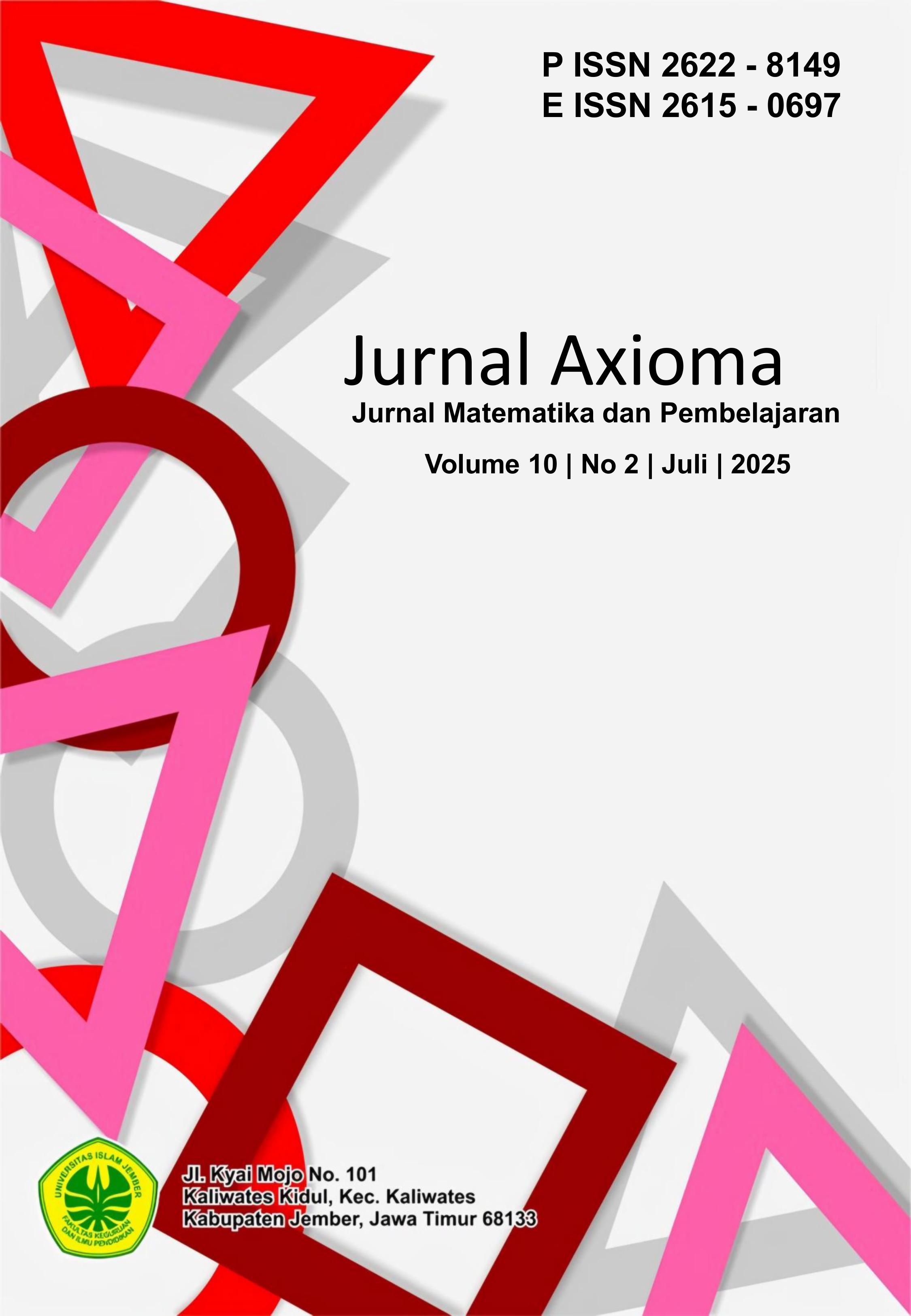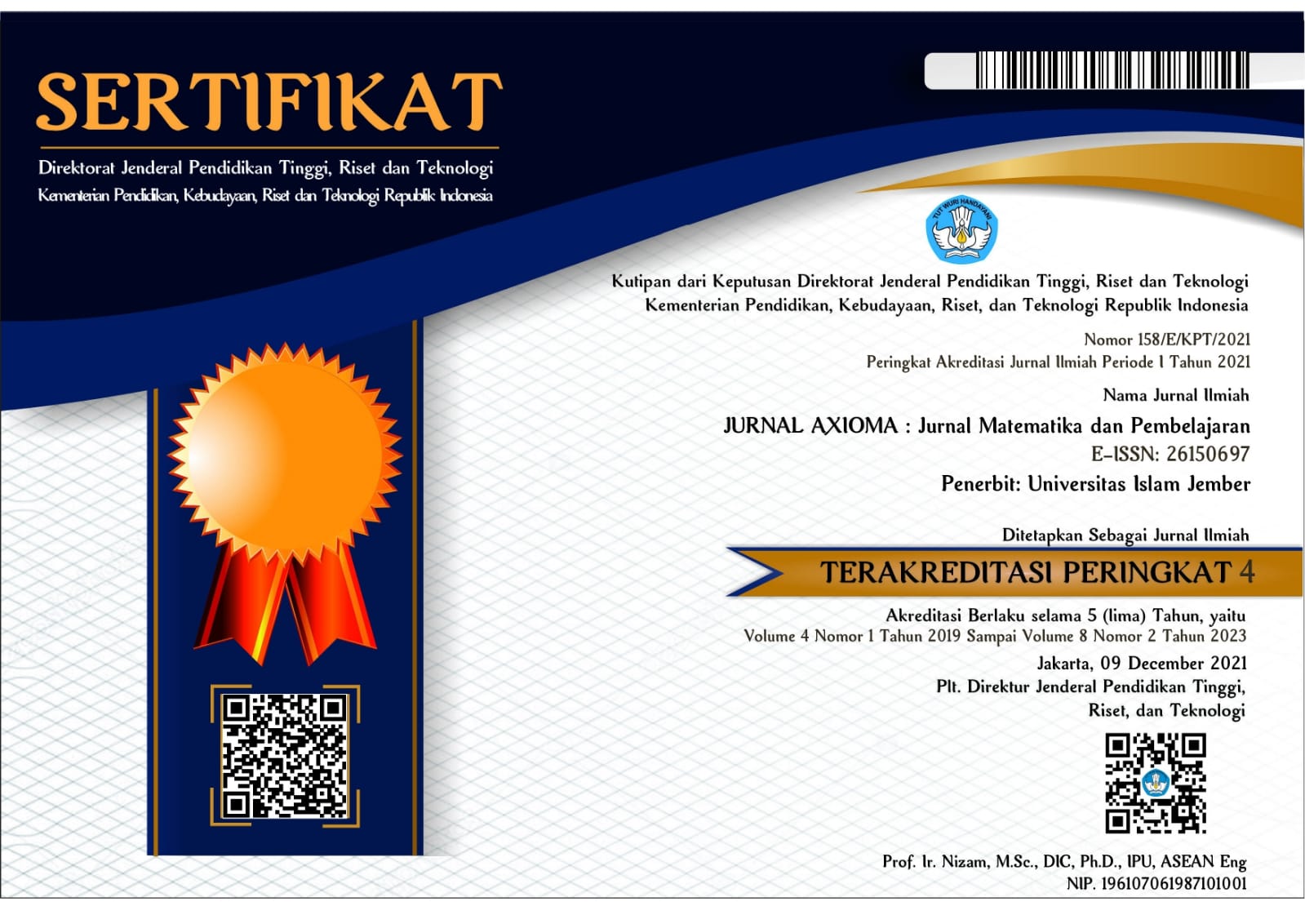Analisis Proses Berpikir Aljabar Mahasiswa pada Mata Kuliah Program Linear
DOI:
https://doi.org/10.56013/axi.v10i2.4352Abstract
This study is a preliminary study that aims to describe the algebraic thinking process of students who teach linear programming. This study is a qualitative descriptive study. Subjects are grouped into three categories, namely high, medium, and low mathematical abilities. Data were obtained based on test results that were analyzed based on students' algebraic thinking processes. The results of this study indicate that students with high and medium abilities carry out algebraic thinking ability activities well. Starting from generalization, abstraction, modeling, dynamic thinking, and analytical thinking, as well as organization. The advantages of students with high mathematical abilities are being able to provide other strategies in solving the problems given. Meanwhile, students with low mathematical abilities are still weak in dynamic, analytical, and organizational thinking activities. One of the contributing factors is the lack of students' ability to represent what is known into mathematical models (inequalities), the use of mathematical symbols, and algebraic operations. The difficulties experienced by students affect students in solving linear programming problems related to the optimum solution material.
Keywords: thinking process, algebraic thinking, linear programming


2.jpg)
.jpg)











